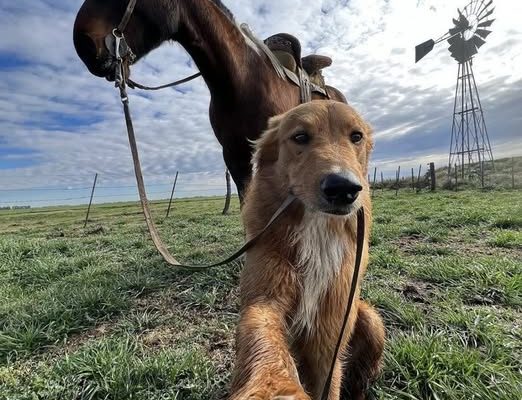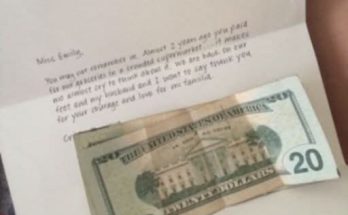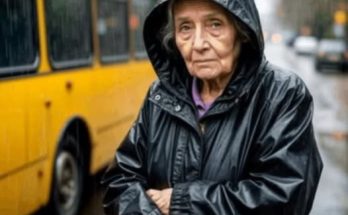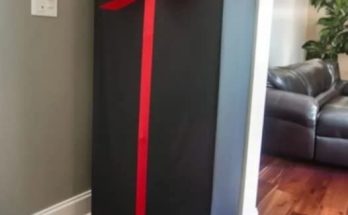That evening, a red pickup truck pulled up near the gate. The engine idled, no one got out. After a minute, it reversed down the road and drove away.
The next morning, I found fresh tire tracks by the fence—same pattern as before. Something didn’t sit right.
I decided to keep the horse in the paddock and gave her a name: Maybell. She was gentle and calm, like she knew she was safe. Still, the whole situation felt uneasy.
On the third day, I got a call from a blocked number. A low voice said, “That horse ain’t yours.” I told him I’d been trying to find her owner.
“She wandered off,” he replied. “I want her back.”
“If that’s true,” I asked, “why haven’t you come to get her?”
Silence. Then a click. He hung up.
That night, I barely slept. Around 2:30 a.m., Barley started growling by the front door. He never growls. I peeked outside and saw headlights down the road. Same red truck. I stepped out on the porch holding my shotgun—just holding it, not pointing. After a long pause, the truck turned and drove off again.
The next day, I called Esme, a friend with years of horse rescue experience. She drove in from out of town, took one look at Maybell, and raised her eyebrows. The saddle, she said, was the kind you’d find from a discount tack shop—used hard and with little care. She showed me rub marks along Maybell’s sides—signs of poor treatment. Then she noticed something else: a faded tattoo in the horse’s ear.
She took a picture and made some calls. Turns out Maybell had been listed missing from a sanctuary three counties away. She’d been adopted under false paperwork and had vanished. The person who’d taken her had a history of questionable animal sales—buying low, flipping fast, and sometimes abandoning animals that didn’t sell.
We figured Barley must’ve come across her tied up in the woods. Somehow, he understood she needed help—and brought her to the one place he trusted.
A few days later, a volunteer from the sanctuary came to bring Maybell home. Before they loaded her into the trailer, I sat with her in the paddock, brushing her coat one last time. Barley lay nearby, watching quietly.
“You did good, boy,” I whispered. “You did real good.”
The red truck never returned. Maybe the person realized it wasn’t worth the trouble. Maybe they saw the care and community now surrounding Maybell. Either way, the silence was a relief.
That week reminded me that doing the right thing isn’t always easy. Sometimes it’s messy, uncertain, and full of unanswered questions. But it’s still worth doing.
And sometimes, the hero of the story doesn’t wear a uniform. Sometimes it’s a loyal old dog with a good heart and a leash in his mouth.
Barley showed me that true kindness doesn’t need to be loud. It just needs to show up when someone is lost—and guide them home.
If this story moved you, share it. Hug your dog. And remember: the smallest acts of loyalty can make the biggest difference.



